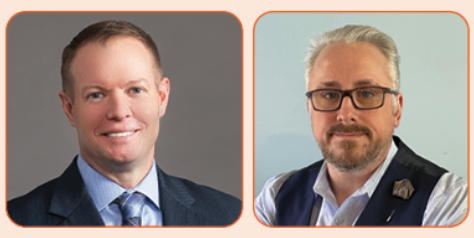eHealth Technologies Uses AI to Expedite Critical Care
Jonathan Kersting
 When a patient is diagnosed with a critical illness, time is truly of the essence to ensure positive outcomes.
When a patient is diagnosed with a critical illness, time is truly of the essence to ensure positive outcomes.
Collecting, organizing and delivering a patient’s complete medical history to begin treatment planning can often take days or even weeks, losing valuable treatment time and causing unneeded anxiety and frustration.
For nearly 20 years, eHealth Technologies has been dedicated to helping these patients access life-altering care as fast as possible.
eHealth Technologies advanced patented technology with embedded artificial intelligence (AI) and a compassionate team quickly gathers patient authorizations, records, lab results, images and pathology materials. This comprehensive approach not only organizes this information in a clinically relevant manner but also delivers actionable medical histories directly into the clinical workflow. By leveraging this strategic integration within the evolving healthcare interoperability landscape, eHealth Technologies allows its clients to decrease time to treatment.
With customers across the country, eHealth Technologies works with the nation’s top-ranked hospitals, including 80% of the U.S. News & World Report Honor Roll Hospitals. eHealth Technologies has helped more than 3 million patients receive prompt treatment for critical health needs, like cancer and organ transplants.
“It's ridiculous that we are still faxing and mailing in this day and age [to get medical records]. It's crazy that if somebody is dying, that it takes weeks to get them scheduled,” said Dan Torrens, CEO of eHealth Technologies. “Thanks to the advancements in healthcare interoperability, there are modern ways to collect medical histories. They include secure messaging, APIs and portals. There are also different locations to get records including direct to the provider, via a release of information vendor, from a Health Information Exchange (HIE) or through a national network.”
By embracing AI, eHealth Technologies has created a solution that works a lot like a navigation app on a smartphone. The app shows the fastest route and if traffic changes, it will redirect the user.
 “We basically built AI that says, ‘here's all the possible ways we can get John Doe's records. And here's the fastest way to go. If the first route didn't work immediately, then try this one next',” said Torrens.
“We basically built AI that says, ‘here's all the possible ways we can get John Doe's records. And here's the fastest way to go. If the first route didn't work immediately, then try this one next',” said Torrens.
Sean Ways, Vice President of Engineering, led the development team for the platform. The AI-powered platform has been out for nearly six months and the results have been impressing both Torrens and Ways.
“Two months after we launched, 29% of the requests that we're getting were filled instantly,” exclaimed Ways. “Literally, we sent it out, boom, we get it back, 29% of what we need. So, no need to fax, no need to wonder where else to go. It just works.”
Some cases that would take three to five days can now be closed in a matter of hours, according to Torrens, meaning care can begin that much faster.
Doctors also see enormous benefits of eHealth Technologies’ platform, according to Torrens.
“The doctors’ biggest complaint is that they get no time to plan care,” he said. “Patients coming in the door either don't have what they need, or it's not clinically organized. eHealth Technologies not only delivers everything quickly, but we clinically organize it so that doctors can take as little time as possible to understand the current state of that patient. Without the clinical organization of the records, the images, pathology material, those doctors are spending more administration time and less time with the patient.”
eHealth Technologies is always looking to improve.
“We're always talking to our customers to determine the next pain point. How else can we support you?” said Torrens. “We have some other ideas in terms of how we not only keep compressing that time, but how do we make sure that the doctors have everything they need to determine the appropriate care plan in a timely manner.”
The passion to help people and save lives is a driving force at eHealth Technologies. Torrens and Ways said the company looks for people who are mission driven and people that put in 110% because they understand that there are patients suffering.
“At the end of the day, that's what it's all about,” said Torrens. “Our primary goal for this year is to help 450,000 patients!”